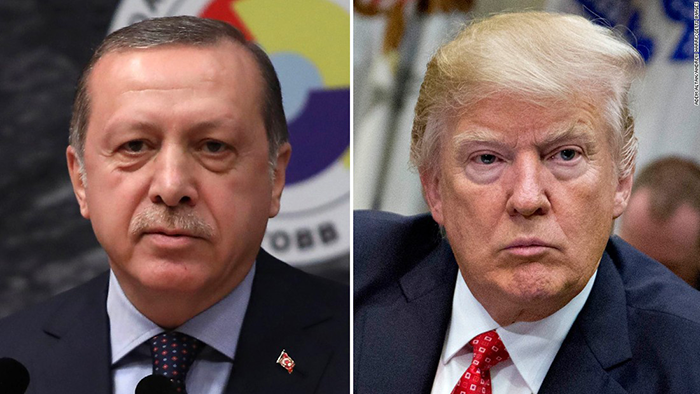Factors Behind the Financial Crisis in Turkey
Political winds from Washington still exert influence over Turkey
Developing Just LeadershipTahir Mahmoud
Dhu al-Hijjah 21, 1439 2018-09-01
News & Analysis
by Tahir Mahmoud (News & Analysis, Crescent International Vol. 47, No. 7, Dhu al-Hijjah, 1439)
Trust is one of the crucial pillars of economic stability. The best way to realize this is by understanding that the US dollar that serves as lubricant for the engine of the contemporary economic order, is based on trust. This is something that George Simmel explained in his 1907 work, the Philosophy of Money. By looking at the devaluation of the Turkish national currency, the lira, in the past month, it is clear that there is some crisis of trust in Turkey’s economic life.
Trying to get a closer understanding of the situation in Turkey, Crescent International discussed the issue with an informed economic expert in Turkey directly involved in the country’s economic policies on the condition of anonymity.
To sum up our source’s perspective, the economic crisis in Turkey has been brewing for over a year mainly because the public and foreign investors were losing trust in the governing system that they saw as sliding toward one-man rule. While the Turkish government had been monitoring the lira’s devaluation for more than a year, Ankara was counting on hard cash from Qatar to finance the current account deficit, which did not materialize on time. Additionally, our interlocutor thinks that the appointment of Berat Albayrak, the son-in-law of President Recep Tayyip Erdogan, as Finance Minister, created further distrust among the Turkish public and foreign investors by reinforcing the narrative of one-man rule.
We also discussed the current situation with an active entrepreneur in Turkey. Following these discussions and our research of secondary data on the ongoing economic disturbance in Turkey, our conclusion is that the crisis is firstly political in nature. Economic factors come in second. Thus, President Erdogan is not exaggerating the external political factors of the current crisis. It is not coincidental that as the Turkish currency was falling, US President Donald Trump doubled tariffs on Turkey’s steel and aluminum products, thus contributing to further decline in the value of the lira.
Under the presidency of Barack Obama, the US was skillfully managing its tactical differences with the ruling AKP in Turkey. Come 2017, when Trump became president, his lack of understanding of international relations further undermined US-Turkish relations.
Keeping in mind that for decades Turkey has been the Western engineered model of a Muslim society under the watchful eye and guidance of NATO, Ankara’s economic leverage is still in the hands of a mostly secular and pro-Western class of entrepreneurs. After the rise of the AKP to power, the economic clout of this class declined and the more conservative and religious business circles from provincial Turkey gained economic ascendency. Nevertheless, the pro-Western millionaires still wield a lot of influence and thus provide Washington with great leverage over Turkey’s economy.

The solution to Turkey’s economic turbulence lies in countering the narrative peddled by the Western media that the country is soon to become a totalitarian state, thus investors must leave before it is too late. This essentially means implementing the so called “democratic” policies by being more inclusive in governance, which in reality means sharing more power with pro-Western political and economic players. So far the AKP has been trying to be with haqq (righteousness) and ba†il (falsehood dressed in garments of truth) at the same time. This manifested itself through AKP’s duplicitous policies against domestic Islamic activists and in Syria. The Turkish government was acting as a well-behaved NATO member and the voice of the Muslim street at the same time, as long as this did not irritate Washington and Israel too much. This the NATO powers tolerated. It appears that as the global influence of Western powers is slowly declining, the West wants the Turkish government to make a clear choice in its favor.
The predicament is that Trump, an amateur and an ignoramus, heads the current regime in Washington and he cannot navigate through delicate aspects of international relations. This leaves the Turkish government with very limited space to develop a face-saving rapprochement on tactical matters with its decades old patron.
Western powers know the Achilles heel of the Turkish economy. Turkey has been under Western dominance for decades, thus as the AKP continues to distance itself from Western powers, mainly to please its Islamically conscious support base within Turkey, external political pressure through economic means will continue to increase. Since the Islamic Awakening (Arab Spring) the AKP-led Turkish government has tried to please the Western elites and the Muslim street at the same time. Now it has to make a choice but it has not fully prepared the Turkish society and its own ruling caste to make the tough decisions.

